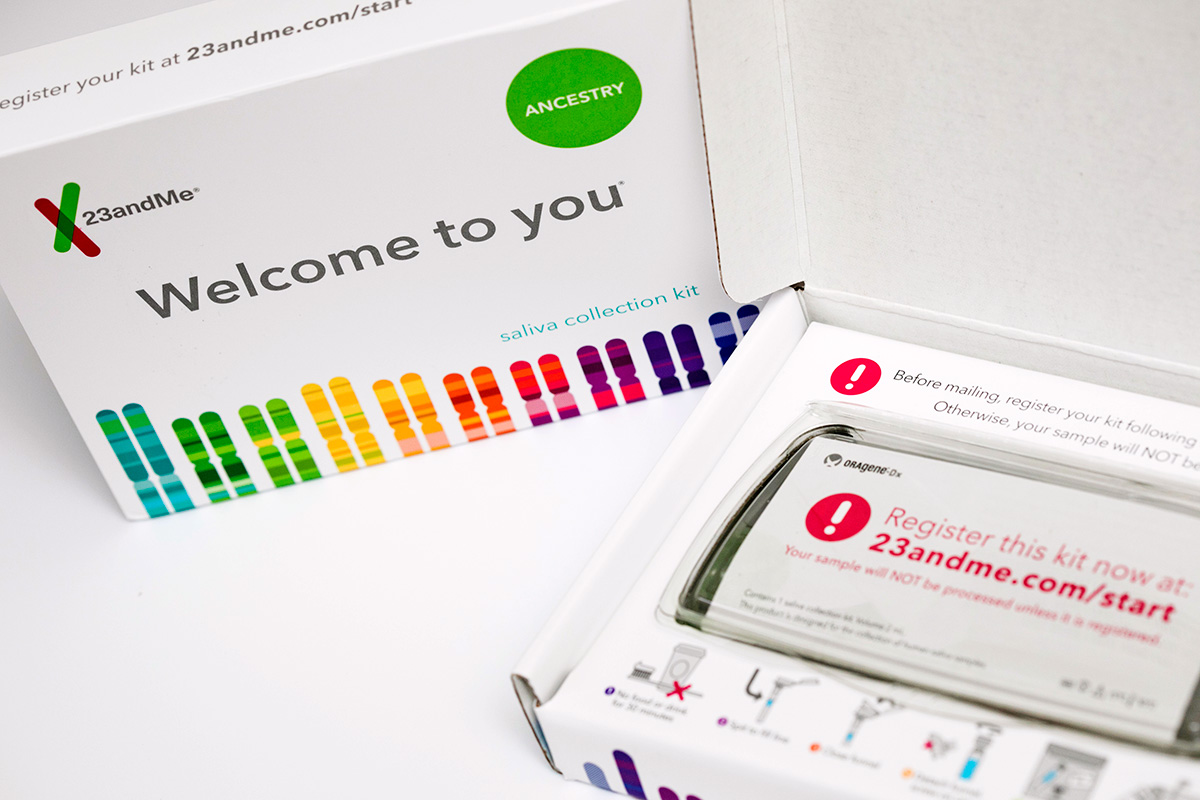What to Know Before Taking 23andMe's Breast Cancer Test

People can now buy a take-home medical test that looks for a certain type of breast cancer risk — but people need to know a few key things to make use of the test safely, a bioethicist told Live Science.
The test in question is produced by 23andMe and looks for three specific mutations in the BRCA1 and BRCA2 genes, which are known to increase the risk of developing breast and ovarian cancer in women, and breast and prostate cancer in men. The U.S. Food and Drug Administration (FDA) gave the direct-to-consumer test approval on Tuesday (March 6).
But consumers should know that the test has several limitations, said Arthur Caplan, a professor of bioethics at New York University's School of Medicine. "I do have some worries" about it, he told Live Science. [7 Diseases You Can Learn About from a Genetic Test]
First, the test itself likely works just fine, as the markers the FDA approved in the test are "pretty well-established," Caplan said. However, the test may give users a false sense of security: It detects just 3 out of more than 1,000 known BRCA mutations, so a person may test negative but still have an increased cancer risk, the FDA said in a statement.
Conversely, because scientists are still learning about how other mutations increase or decrease cancer risk, it's possible that a person could test positive but still not be at high risk, Caplan said.
If people do test positive, they might not know where to turn for sound medical advice, Caplan added.
"The company will say [that] they'll put you in touch with a genetic-counseling website, but that's not good enough," Caplan said.
Sign up for the Live Science daily newsletter now
Get the world’s most fascinating discoveries delivered straight to your inbox.
For instance, people might not realize that there are different treatments available, as well as many potential therapies in the pipeline that could treat these cancers in the years to come, Caplan noted. A family doctor might not be aware of these developments, which is why "you need to get good counseling," he said.
Furthermore, only a small percentage of people — mostly women of Ashkenazi (Eastern European) Jewish descent — carry these three BRCA mutations. Because these mutations aren't common in the general population, it doesn't make much sense for people to take the test unless they have a history of these mutations in their family, or if their background is Ashkenazi, Caplan said.
In fact, only a minority of breast cancers — just 5 percent to 10 percent — are thought to be hereditary, according to the American Cancer Society. Environmental factors, such as smoking, obesity and a sedentary lifestyle may also increase breast cancer risk, according to the American Cancer Society. So, even if people test negative on the 23andMe test, their habits may still put them at risk of developing the disease.
It's also important to note that if people test positive on the 23andMe test, they could be penalized by disability or life insurance companies, Caplan said. For instance, it might be harder to get approved for these types of insurance. For instance, company might refuse to pay the beneficiaries if it finds out that the client died of breast cancer, but didn't inform the company of the test results, Caplan said. (Health insurers are barred from using genetic information to determine coverage by the Genetic Information Nondiscrimination Act.)
In all, "an Ashkenazi woman might want to consider the test, but I would still get it done through a genetics program, not direct-to-consumer [testing]," Caplan said. But, that's not to say that take-home genetic tests are a bad idea.
"This is a rapidly evolving area," Caplan said. "The trick is to get it done well. Not to stop it, but to make sure [that] things like counseling [happen] and the right groups get the test."
Original article on Live Science.

Laura is the archaeology and Life's Little Mysteries editor at Live Science. She also reports on general science, including paleontology. Her work has appeared in The New York Times, Scholastic, Popular Science and Spectrum, a site on autism research. She has won multiple awards from the Society of Professional Journalists and the Washington Newspaper Publishers Association for her reporting at a weekly newspaper near Seattle. Laura holds a bachelor's degree in English literature and psychology from Washington University in St. Louis and a master's degree in science writing from NYU.











